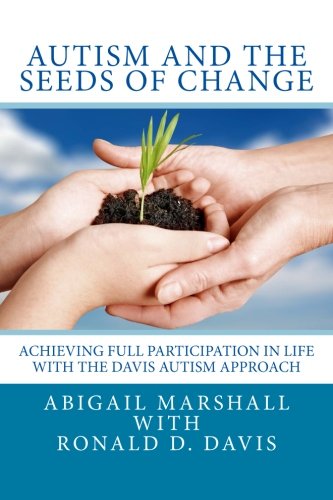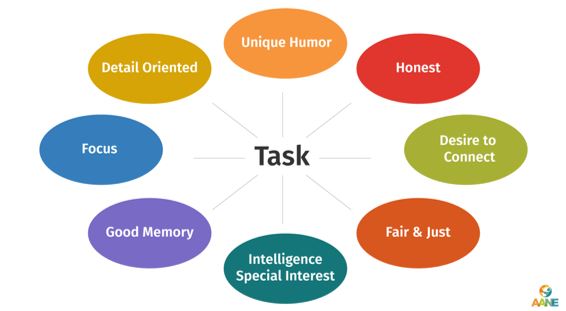
The Davis Autism Approach can help you or your family member achieve growth and move past developmental blocks and become “unstuck”. The Davis Autism Approach® is deeply respectful, gentle and will help you participate more fully in the life you choose. The Davis Autism Approach is described in this book and the videos below:

What kind of results do people see with the Davis Autism Approach® program?
Participants who have completed the program have experienced many positive changes. These are some of the most common results Davis Autism Facilitators see, which have been confirmed through independent and ongoing research:
- less anxiety
- increased ability to be able to take part in daily activities and create order in their life
- a willingness to try new things
- greater capacity to cope with change
- greater ability to cause a change in their life
- a reduction in sensory overload symptoms
- reductions in meltdowns
- a greater sense of self , and
- being better equipped in relationships
Autistic Traits or Signs common in adults:
- feeling anxious in social situations,
- finding it difficult to understand what others think or feel
- seeming rude, blunt or uninterested in others, without meaning to
- enjoying being alone and finding it hard to make friends
- taking things very literally and finding it hard to understand sarcasm like “break a leg”
- feeling comfortable having the same routine every day and getting anxious with change
Other signs of Autism may be
- avoiding eye contact
- trouble understanding social “rules”, such as “not talking over others”
- getting too close to people or becoming upset when people get too close to you
- noticing small details, patterns, smells and sounds others do not notice
- liking to plan outings extremely carefully before doing them
- keen interest in one topic or in certain activities
Gender differences and Autism
Women have been historically harder to diagnose because they may have:
- learned to hide signs of autism to “fit in” and copying people who are not autistic
- appear to cope better with social situations and suffer internally
- are quieter and hide their feelings
- may show fewer signs of repetitive behaviors.
This can lead to it being harder to tell you have traits associated with autism, if you are a female exhibiting the above signs.
Additional Autistic Strengths

